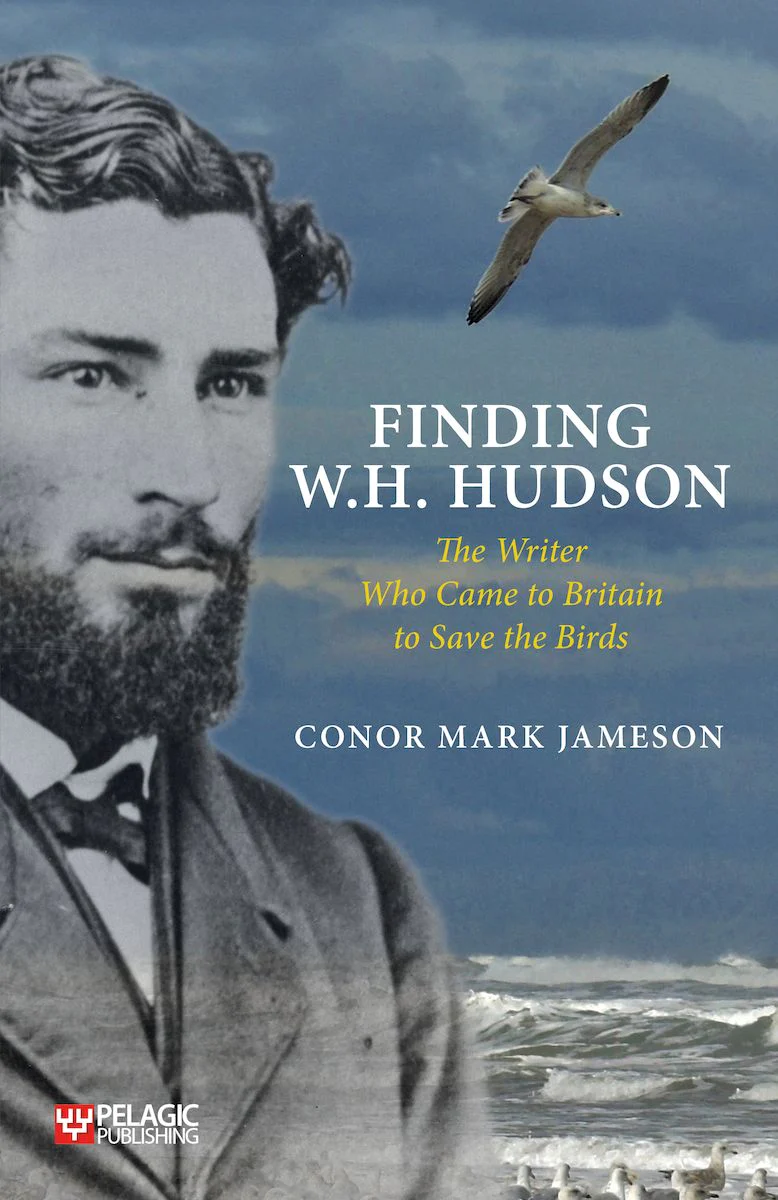
Those who have worked at the RSPB Headquarters at Sandy, and some who have gone there for meetings, will have seen the portrait of Hudson above the stone fireplace in what used to be called the main meeting room where, long ago, staff used to have lunch served to them. He became a familiar sight, and a friendly old bloke he appeared to be. But what was he really like?
And if pushed to say what was his contribution to bird conservation, many of us would have struggled for he is, until now, a neglected figure, despite being a well-known name.
This tender portrait of Hudson and his life and times fills in many of the gaps about the man and his work although Hudson didn’t cooperate with posterity by wanting his papers and letters destroyed and being somewhat taciturn in his life.
He arrived in the UK from Argentina at the age of 33. Times were so hard for him he had to sleep rough in Hyde Park. Fifty years later, in that same park, the Prime Minister, Stanley Baldwin (who once mentioned Corncrakes in a speech invoking rural nostalgia), unveiled a Jacob Epstein monument to this writer and campaigner.
Jameson has done a wonderful job in researching Hudson’s life which seems to have been populated with major public figures throughout. Hudson’s role in the founding and establishment of what became the RSPB with Emily Williamson, Etta and Frank Lemon, Eliza Phillips, the Duchess of Portland and more is described. But Hudson, though describing himself as foremost a field naturalist had to make a living from writing and he was friends with the likes of Galsworthy, Conrad, Tagore, Woolf and Edward Thomas. He knew Sir Edward Grey (‘The lamps are going out…’), Foreign Secretary and birder, whose name was taken by the Oxford Institute of Field Ornithology, and Alfred Newton and Percy Sclater, as well as publicly criticising Charles Darwin for getting his facts wrong about South American woodpeckers.
The book feels like a walk through late Victorian and Edwardian society and to the new beginnings after World War One. It is fascinating. But I was a little disappointed that there was no summary at the end of the book of Jameson’s assessment of Hudson’s overall importance and impact. He was clearly much respected, despite being a bit difficult to get on with at times. He left behind him a wealth of writing – a mixture of romances, memoirs of his childhood on the pampas of Argentina and accounts of the British countryside. I’ll give them a read as a result of this biography.
The next time I pop into The Lodge I’ll have another look at Hudson, and see him with new eyes.
The cover? That’s him! The gulls are a bit distracting – but then, they often are. I’d give it 7/10.
Finding W.H. Hudson: the writer who came to Britain to save the birds by Conor Mark Jameson is published by Pelagic Publishing.
[registration_form]
Thanks Mark – glad you had time to read and review – and that’s a typically perceptive summary. I wrote a ‘BB Eye’ for British Birds a little while ago, on ‘Hudson’s place in ornithology’. There wasn’t room for it as a Postscript in the biography, but it might serve as a summary of how I (and others, some less tender!) would sum things up. All best – and congrats on your latest book too.
I always remember sitting in front of that portrait at Sandy when the proposed purchase of RSPB Winterbourne Downs was discussed. Being a non-native but a naturalised Wiltshire man, the works of Richard Jefferies and WH Hudson had loomed large in my local reading experience; ‘Wildlife of a southern county’ and ‘A shepherd’s life’ to name just two.
When the final decision was taken to purchase the farm at Sutton Veny, I can recall saying “the bloke sat behind me would have added his vote to that one”. I was slightly surprised by the comments that said “who is he” but it did make it it quite a proud day to get a Wiltshire reserve whilst sat there.
I must read this book.